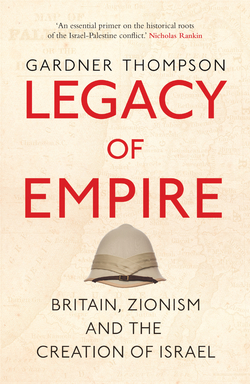 A haughty and persistent sneer dominates Thompson's book, starting with the very title, which turns Zionists into bit actors in their own drama. Thompson's approach turns a serious and deep topic into a puerile copybook exercise. This self-described historian of British colonialism reduces Middle Eastern passions to London-based drawing-room dilettantism.
A haughty and persistent sneer dominates Thompson's book, starting with the very title, which turns Zionists into bit actors in their own drama. Thompson's approach turns a serious and deep topic into a puerile copybook exercise. This self-described historian of British colonialism reduces Middle Eastern passions to London-based drawing-room dilettantism.
Illustrations of this unfortunate approach abound; consider some quotes from the author's introduction:
- "The Balfour Declaration was a landmark expression of nimbyism. ... This approach did something to protect Britain and other states from politically unpopular Jewish immigration; it did nothing to recognise the rights of Palestinians in their homeland."
- He breezily condemns "the uncharacteristic ineptitude of decisionmakers in the British government in the aftermath of the First World War" as concerns Zionism.
- He finds "caprice in [British Prime Minister] Lloyd George's adoption of Zionism, along with a dogged refusal to grasp that it could not work."
- Zionism he calls "only one, eccentric, answer to the Jewish Question of the late nineteenth century."
- "Israel was – and remains – scarred by an inter-communal conflict provoked by Zionist colonization fostered by the British during an ill-judged administration of Palestine."
As befits so condescending a book, Thompson's pretense to originality falls predictably short. He begins with a superficial survey of the Jewish and Zionist background, then immediately goes off-track in claiming an alleged Zionist blindness to the Muslim population of Palestine, concluding with the canard that "Zionists preferred the fiction of a land without a people."
This last error typifies Thompson's superficiality; a smidgen of research would have turned up a 1991 article by Adam M. Garfinkle that documents how acutely aware the Zionists were of Palestine's indigenous population and that the phrase "Palestine is a country without a people; the Jews are a people without a country" refers not to demographics but to nationhood. To take one of many examples, David Ben-Gurion wrote in 1918, "Palestine is not an empty country ... on no account must we injure the rights of its inhabitants."
Thompson chose a rich topic; too bad he handled it wretchedly.
